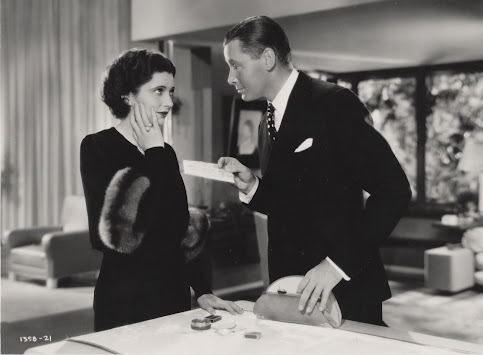The Master of Sex.
In the early 1930s, Hollywood adopted the infamous Hays Code, setting out a strict set of moral guidelines to which all films were required to adhere.
Although the Code had been drawn up several years earlier, it was not strictly enforced until June of 1934, after which, all films were required to be submitted to (and passed by) the censorship board before they could be distributed or screened in the US.
If you would like to know what led to the enforcement of such a puritanical code of conduct on an industry that was doing just fine, thank you very much, I would urge you to make yourself acquainted with this man:
This, ladies and gentlemen, is Ernst Lubitsch.
When he died (in 1947, at the age of 55) the film director William Wyler ostensibly said, "No more Lubitsch." And his friend, the legendary director Billy Wilder, replied, "Worse than that; no more Lubitsch pictures."
Lubitsch was a German-born film-maker who had been working in Hollywood since 1922. When the Hays Office drew up their list of taboos and prohibitions, they probably had a giant photo of Lubitsch mounted over their dart board. In fact, they might very well have been using the film we're about to see as a "cheat-sheet". Virtually every point covered by the Production Code is joyfully (and exquisitely) violated in Trouble in Paradise (1932).
Sex? Yes.
Extra-marital sex? Yes.
Non-standard sex? Yes.
Kinky sex? Oh yes.
Glamorised Criminals? Yes.
Criminals who escape justice? Yep! (Sorry; spoilers...)
In a nutshell, Herbert Marshall and Miriam Hopkins play a pair of high-end crooks who travel around Europe ripping off the very, very wealthy.
Kay Francis is their latest mark, the widowed owner of a Paris perfume manufacturer.
Charlie Ruggles and Edward Everett Horton play her rival suitors.
Calling Trouble in Paradise a sex comedy makes it sound tawdry and salacious. Nothing could be further from the truth.
This film isn't salacious; it's delicious.
Anyone can do smut. And sex is easy. But Ernst Lubitsch was one of the few directors who could do sexy.
Two years later, the Hays Code descended on Hollywood like an unwelcome tax audit, and films like this were rendered completely off limits. Trouble in Paradise was withdrawn from distribution, never to be seen again for the next thirty-six years.
Today it stands as a reminder of just how naughty a film could be without necessarily showing you anything.
We will screen Trouble in Paradise at 7.30 on Thursday, the 1st of February at the Victoria Park Baptist Church.












Comments
Post a Comment